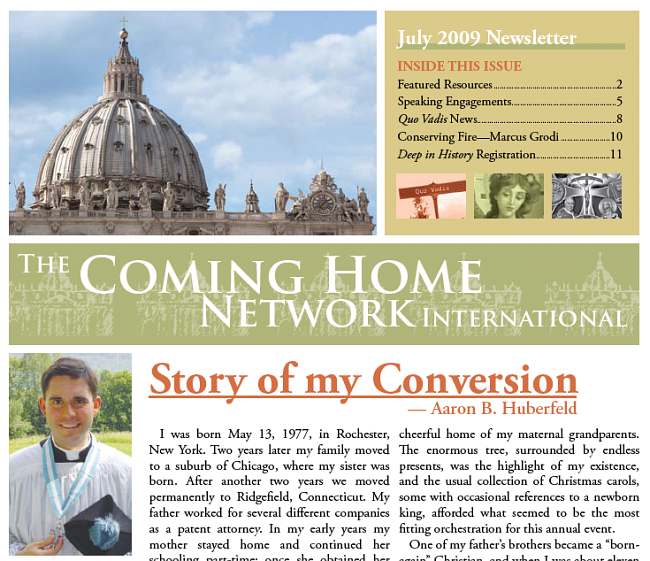
Coming Home Network er en organisasjon i USA som har som oppgave å hjelpe protestanter (alle helst prester) til å finne Den katolske Kirke. Jeg ble kontakta av dem rett etter min prestevielse i januar 2000, og har hatt en del kontakt med dem siden. Organisasjonen er ganske konservativ teologisk, men ikke før i dette siste nummeret av deres nyhetsbrev – les det her (pdf) – har jeg sett at de har interessert seg for den Tradisjonelle latiske messen. Der skriver en ung mann som snart skal prestevies for ICK:
That morning in Holy Trinity Church changed the course of my life. Seeing the priest emerge humbly from the sacristy and go unto the altar of God, I thought at once: I want to be a priest. I made it downtown to the Latin Mass a few Sundays later, and it was a High Mass, with Gregorian chant and Palestrina. This is all I want in life. This time I discovered the coffee hour after Mass. The people were very friendly, and I learned from talking with them that there were several communities in the Church where one could study for the priesthood in the traditional rite. A new world had opened to me, and I was beside myself with glee. Despite this first fervor, it would be another three years before I would finally arrive as a candidate for the seminary of the Institute of Christ the King Sovereign Priest. The events that intervened belong as much to the story of my conversion as to that of my vocation.
My faith was “stirred up” on those Sundays of Advent, 1999. I later learned that these were once called the Stir-up Sundays for their collects which begin with that phrase — Excita, Domine. I knew that before making any decision about the seminary, I needed to take a great step forward in the practice of my faith. My life had to be become Christ-centered. I ended a long-standing relationship that had been threatening my faith. I began to attend daily Mass (unlike Sundays, the daily Mass near my apartment was quiet and prayerful) and to say my daily Rosary much more faithfully (I unhesitatingly credit the Rosary for preserving me through those years when I had grown lax in my new religion). For the first time since my conversion, I went to confession regularly. I started to learn more about the worldwide Catholic Church by attending liturgies of the Eastern rites. It was nothing short of a second, greater conversion. All through college, it was enough if I could tell people that religion was an important part of my life. I had now experienced a change of heart: religion was not an important part of my life; my life was part of my religion.
